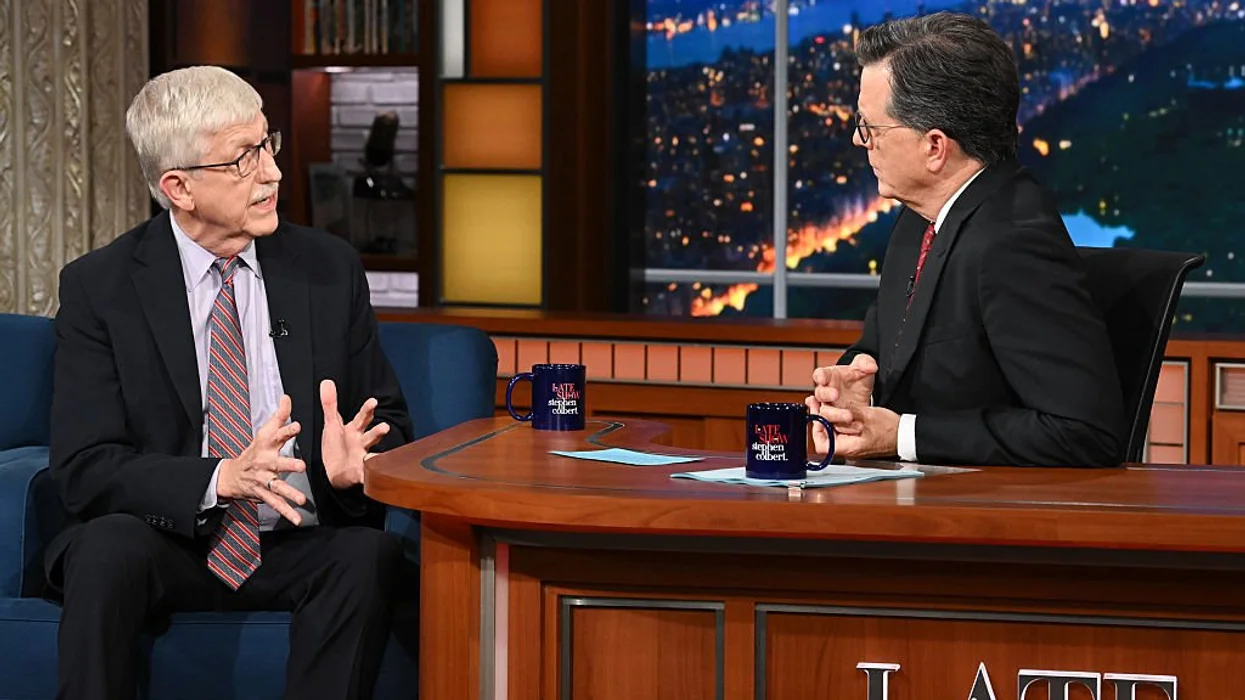
© 2025 Blaze Media LLC. All rights reserved.
Ben Bernanke to Make History Tomorrow With 'Fedapalooza' Spectacle
April 26, 2011
What is 'Fedapalooza' you ask? Let us explain.
WASHINGTON (AP/THE BLAZE) -- When Ben Bernanke makes history Wednesday as the first Federal Reserve chief to begin a series of regular news conferences, his tasks will be simple. That doesn't mean they'll be easy:
Make no unintended news. Defuse critics of Fed policymaking. Say nothing that might spook investors.
"If he succeeds, he will not make any impact whatsoever" on bonds, stocks or the dollar, says Timothy Duy, an economist at the University of Oregon who writes a blog on the Fed.
Business Insider has its own very prediction, as well, which is worth reading.
The historic news conference, the first of three this year, is part of a long-standing Bernanke campaign to make the central bank more transparent and publicly accessible. His efforts have included town-hall meetings and appearances on "60 Minutes." The chairman's public appearances have followed criticism that the Fed, an independent government agency, was for too long secretive and unaccountable.
After giving an opening statement, Bernanke is scheduled to take reporters' questions for 45 minutes. He'll do so less than two hours after the Fed issues a statement outlining its latest policies on interest rates and the economy. The Fed is expected to say that its benchmark rate will remain near zero and that its $600 billion Treasury bond-buying program will end in June as planned.
By helping to keep downward pressure on interest rates, the bond-buying program was intended to encourage spending and boost growth. But critics say all that spending has raised the risk of high inflation.
Under Bernanke, the Fed's policies have run into criticism from some of the Fed's own regional bank presidents. They say the central bank should stop trying to stimulate growth and start fighting inflation by raising interest rates from super-low levels before the year ends. They point to the run-up in gasoline and food prices. Higher interest rates could slow spending and make inflation less likely.
Bernanke and a majority of Fed officials counter that those higher prices are temporary and, apart from energy and food, won't lead to substantially higher prices overall. The news conference "gives Bernanke a nice opportunity to present the Fed's case frankly in his own words without a lot of spin," says Alan Blinder, a Princeton University economist and a former Fed vice chairman.
At the same time, Bernanke must take care not to let unguarded comment unnerve financial markets.
"The press conference is not supposed to add volatility or uncertainty," says Marc Chandler, head of global currency strategy at Brown Brothers Harriman.
On the other hand, Bernanke will likely try to steer clear of the jargon and bland generalities with which his predecessors once shrouded Fed policy.
"He would not like it if the post-mortems said all he did was blow smoke and speak gobbledygook," Blinder says.
Bernanke has shown he can field questions deftly in public settings. A former longtime economics professor at Princeton, he is fond of deconstructing complex subjects. He also has plenty of experience handling hostile queries from critics in Congress and on "60 Minutes."
To prepare for his news conference, Bernanke has watched tapes of how his counterparts in Europe - Jean-Claude Trichet, president of the European Central Bank and Mervyn King, head of the Bank of England - have performed at news conferences. Two months ago at a meeting of finance officials in Paris, Bernanke pulled aside Trichet and King to quiz them on how they manage their encounters with reporters.
Despite Bernanke's experience and preparation, answering questions live in public isn't without risk. Financial markets can misinterpret or overreact to a stray comment.
"Markets are panic-prone," Blinder says. "They're ready to panic at the slightest provocation."
Bernanke has stumbled in the spotlight before.
Just months into his new job as Fed chairman in 2006, he rattled Wall Street because investors thought he sent them contradictory signals about interest rates. Bernanke complained to CNBC's Maria Bartiromo at a Washington dinner that investors had misinterpreted recent remarks he made before Congress as a signal that the Fed was preparing to end a two-year effort to tighten credit.
CNBC reported Bernanke's conversation, and stocks slumped in response. Weeks later, Bernanke told members of Congress that he'd suffered a "lapse of judgment" by speaking to the CNBC anchor.
In theory, the Bernanke news conferences - four will be scheduled each year - give him a chance to better control the Fed's message. He can make himself heard above some of the Fed's outspoken inflation hawks.
At the same time, any war of words with dissenters could escalate and create public confusion about Fed policy.
"Lack of a consistent message is a problem," said Ken Thomas, a lecturer in finance at the University of Pennsylvania's Wharton School. "That is a big fear."
Joseph Gagnon, a former Fed official who is now senior fellow at the Peterson Institute of International Economics, says he thinks the anti-inflation dissenters at the Fed are drawing too much publicity. They lack the votes to make a difference inside the Fed. Bernanke's easy-money policies have been approved unanimously this year by the Fed's policymaking committee.
By talking to the media, Bernanke can "get out there before other guys start to spin it their way," Gagnon says. "Why should they get all the attention?"
Want to leave a tip?
We answer to you. Help keep our content free of advertisers and big tech censorship by leaving a tip today.
Want to join the conversation?
Already a subscriber?
more stories
Sign up for the Blaze newsletter
By signing up, you agree to our Privacy Policy and Terms of Use, and agree to receive content that may sometimes include advertisements. You may opt out at any time.
Related Content
© 2025 Blaze Media LLC. All rights reserved.
Get the stories that matter most delivered directly to your inbox.
By signing up, you agree to our Privacy Policy and Terms of Use, and agree to receive content that may sometimes include advertisements. You may opt out at any time.






